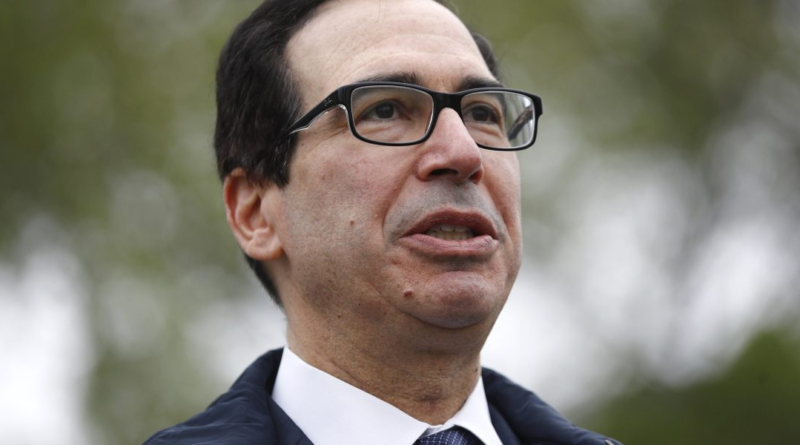Mnuchin to put together TikTok bidding group: ‘There’s no way that the Chinese would ever let a U.S. company own something like this in China’
Former U.S. Treasury Secretary Steven Mnuchin says he’s going to put together an investor group to buy TikTok, a day after the House of Representatives passed a bill that would ban the popular video app in the U.S. if its China-based owner doesn’t sell its stake.
TikTok, which has more than 170 million American users, is a wholly-owned subsidiary of Chinese technology firm ByteDance Ltd.
Speaking on CNBC’s “Squawk Box,” Mnuchin said Thursday that he believes TikTok should be sold.
“This should be owned by U.S. businesses. There’s no way that the Chinese would ever let a U.S. company own something like this in China,” said Mnuchin.
Mnuchin, the U.S. Treasury secretary under President Donald Trump, didn’t provide details on who else may be included in the investor group he plans on forming or TikTok’s possible valuation.
TikTok did not immediately respond to a request for comment.
The House bill, passed by a vote of 352-65, now goes to the Senate, where its prospects are unclear. House lawmakers had acted on concerns that TikTok’s current ownership structure is a national security threat.
Lawmakers in the Senate have indicated that the measure will undergo a thorough review. Senate Majority Leader Chuck Schumer, D-N.Y., has said that he’ll have to consult with relevant committee chairs to determine the bill’s path.
President Joe Biden has said if Congress passes the measure, he will sign it.
TikTok has long denied that it could be used as a tool of the Chinese government. The company has said it has never shared U.S. user data with Chinese authorities and won’t do so if it is asked. To date, the U.S. government also has not provided evidence that shows TikTok shared such information with Chinese authorities.
WHO ELSE COULD BUY TIKTOK?
While some others have voiced an interest in buying TikTok’s U.S. business — among them “Shark Tank” star Kevin O’Leary — there are a number of challenges including a 6-month deadline to get it done.
“Somebody would have to actually be ready to shell out the large amount of money that this product and system is worth,” said Stanford University researcher Graham Webster, who studies Chinese technology policy and U.S.-China relations. “But even if somebody has deep enough pockets and is ready to go into negotiating to purchase, this sort of matchmaking on acquisitions is not quick.”
Big tech companies could afford it but would likely face intense scrutiny from antitrust regulators in both the U.S. and China. Then again, if the bill actually becomes law and survives First Amendment court challenges, it could make TikTok cheaper to buy.
“One of the main effects of the legislation would be to decrease the sale price,” said Matt Perault, director of the University of North Carolina’s Center on Technology Policy, which gets funding from TikTok and other tech companies. “As you approach that 180-day clock, the pressure on the company to sell or risk being banned entirely would be high, which would mean probably the acquirers could get it at a lower price.”
HASN’T SOMEONE TRIED TO BUY TIKTOK BEFORE?
Yes. The Trump administration — Mnuchin was Treasury secretary at the time — brokered a deal in 2020 that would have had U.S. corporations Oracle and Walmart take a large stake in TikTok on national security grounds.
The deal would have also made Oracle responsible for hosting all TikTok’s U.S. user data and securing computer systems to ensure national security requirements are satisfied. Microsoft also made a failed bid for TikTok that its CEO Satya Nadella later described as the “strangest thing I’ve ever worked on.”
Instead of congressional action, the 2020 arrangement was in response to then-President Trump’s series of executive actions targeting TikTok.
But the sale never went through for a number of reasons. Trump’s executive orders got held up in court as the 2020 presidential election loomed. China also had imposed stricter export controls on its technology providers.




